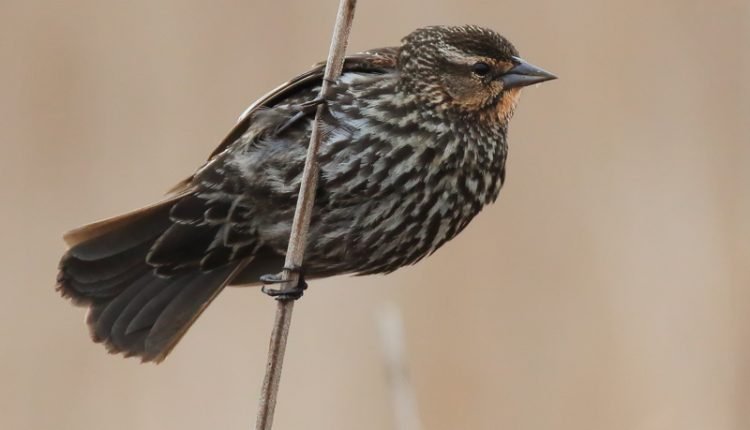[ad_1]
Many crop seeds are coated with toxic insecticides called neonicotinoids, which threaten seed-eating birds and insects while providing little benefit to crops in most cases.
The Environmental Protection Agency (EPA) today rejected a petition request from the American Bird Conservancy (ABC) and other parties seeking to change a dangerous regulatory loophole for pesticide-coated seeds. Rather than regulate these coated seeds as the agency does other pesticide uses, the EPA said it will review language and labeling requirements and conduct an overall review of seed treatment use. . The EPA also announced that it “may explore the option” of issuing a rule to ensure that coated seeds are used properly — a process that could take years to have any significant impact.
This decision means that pesticides applied as seed coatings will continue to be used without being monitored, quantified, or regulated like other pesticides. This was done despite scientific evidence that seeds coated with particularly toxic insecticides called neonicotinoids (neonics) are known to kill birds such as Red-winged Blackbirdsinvertebrates, and other wildlife while providing little benefit to most crops.
“We are very disappointed by this news,” said Hardy Kern, Director of ABC’s Pesticides and Birds Campaign. “EPA’s decision will continue to endanger the millions of birds that are at risk from ingesting neonic-coated seeds and/or losing insect prey to the environmental effects of pesticides.”
Female Red-winged Blackbird, copyright Glyn Sellors, from surfbirds galleries
Pesticide-coated seeds are the number-one use of neonics. When eaten, a neonic-coated seed can kill a songbird. But the danger to birds doesn’t stop there. Only 2 to 20 percent of the chemical is taken up by the plant as it grows — the rest seepage into the soil and groundwaterwhere it kills the invertebrates that birds depend on for food and that humans need for crop pollination.
Indiscriminate killing of invertebrates may pose a greater threat to bird life than direct poisoning. A study in the Netherlands revealed a continued decline in bird populations near areas where farms used neonic-coated seeds.
There is little evidence that the benefit to crops is worth the cost to the environment. Studies show that neonic-coated seeds provide limited protection to cash crops such as corn and soybeans — they can even reduce yields in certain cases. For example, a 2014 laboratory study found that a neonic insecticide applied to soybean seeds left slugs (a common pest) unaffected but killed predatory beetles that control the pests.
However, coated seeds are the pesticides that are not properly regulated. This is due to the “Treated Article Exemption,” which was introduced into the Federal Insecticide, Fungicide, and Rodenticide Act of 1988. The amendment makes so-called “pesticide-treated articles” exempt from registration, labeling, and tracking. Because of this loophole, farmers may not know whether they are buying treated seeds or not.
In 2017, ABC partnered with nonprofits representing pollinator health and food safety to challenge this status quo. The coalition petitioned the EPA to monitor and regulate coated seeds like other crop pesticides. After the EPA failed to respond, members of the petitioning group filed a formal complaint in December 2021.
As a result of that complaint, in July of this year, the EPA issued an order stating that “no later than September 30, 2022, the appropriate EPA official shall, by letter, either grant, deny , or grant in part and deny in part each of the 2017 Petition Requests.”
“EPA’s decision today to deny the petition’s request to exclude pesticide-coated seeds from the Treated Article Exemption represents a blow to grassland and insect-eating birds,” Kern said. “The US and Canada are almost 3 billion fewer birds than in 1970, in part due to loss of prey and pesticide poisoning. This is a missed opportunity to mitigate these threats.”
Actions that EPA has instead proposed, including clarifying language on seed bag tag labels and reviewing possible misuse of coated seeds, are unlikely to provide relief to birds and other wildlife . They may improve understanding of the use of coated seed, but the EPA has effectively endorsed the continued use of neonic-coated seeds with little oversight or regulation.
“The current system is failing the birds,” Kern said. “Without changes to the Treated Article Exemption, it will be impossible to accurately implement the Endangered Species Act and other laws to save wildlife. The ABC will continue to fight for change in the way these chemicals are regulated.”

Comments are closed, but trackbacks and pingbacks are open.